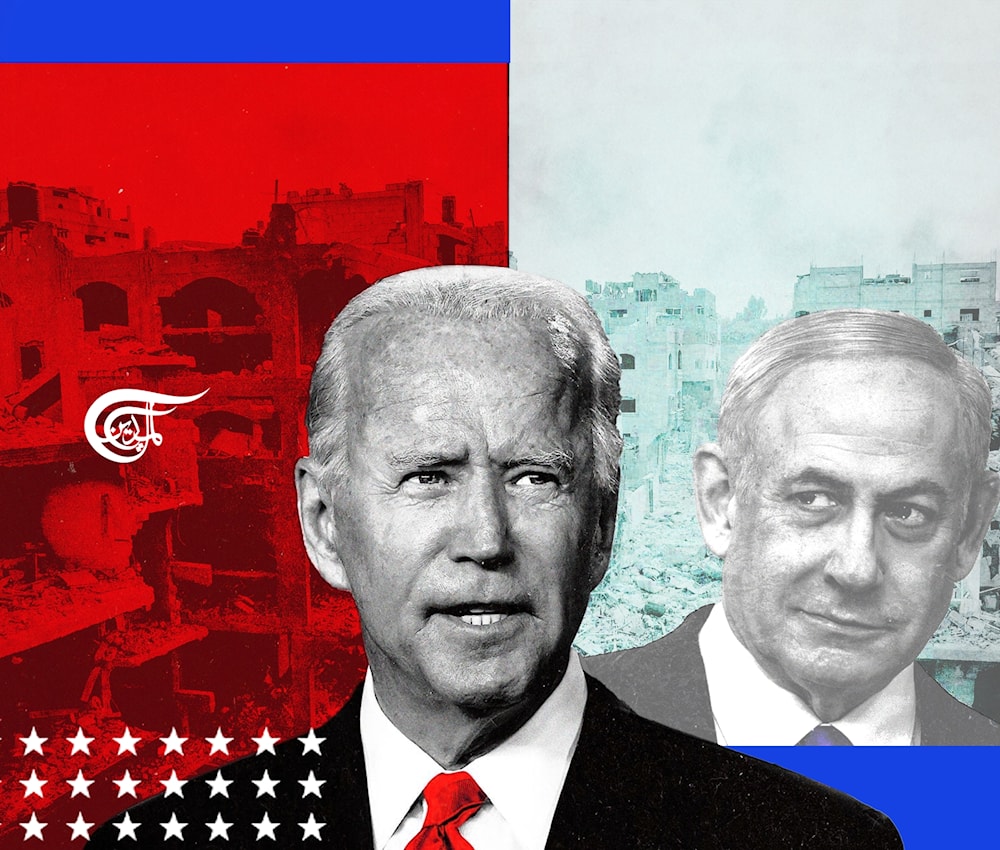No Plan ‘B’ for the Gaza Conflict; ‘It Was all For Show’
The last effort to ‘get Hamas to ‘yes’’ by glossing the text to specify a phase-two ‘end to conflict’, and a complete withdrawal of all Israeli forces from all Gaza, subsequently was angrily disavowed by the Israeli government.
-

No Plan ‘B’ for the Gaza Conflict; ‘It Was all For Show’
Last Friday, President Biden tried to corner Netanyahu’s government by announcing on national television a three-phase plan for Gaza that he pointedly and repeatedly called “Israel’s proposal”. This proposal, Biden claimed, would result in the release of all hostages, end the war, and see a start to the rebuilding of the Gaza Strip without Hamas in power.
Biden assured ‘the people of Israel’ that “they can make this offer without further risk to their own security, because they’ve devastated Hamas forces over the past eight months. At this point, Hamas no longer is capable of carrying out another October 7th — one of the Israelis’ main objectives in this war”.
And if Hamas fails to fulfill its commitments under the deal, Biden announced, “Israel can resume military operations”. Whilst adding, in the next sentence, “[that] Egypt and Qatar have assured me and they are continuing to work to ensure that Hamas doesn’t do that.”
What on earth does this last sentence mean?
The proposal unveiled by Biden on Friday night effectively requires Hamas to consent to its own demise. Why, one must ask, would Hamas agree to this? When, how, and by what means would Hamas be “destroyed” if Israel’s hostage-ceasefire offer provides for a permanent end to hostilities?
Biden’s exposition of the Israeli proposal’s three phases did not include specific reference to Hamas’ demand for the end of the war; nor for the release of all security prisoners recaptured since the 2011; nor Hamas’s insistence that it will select the prisoners that would be released.
And it conveniently ignores too recent statements by two senior Israeli officials: Last week, National Security Adviser Tzachi Hanegbi reportedly told families of some of the hostages that the current government will not agree to end its war against Hamas in exchange for the release of all the remaining hostages … “The message -- made during a heated meeting during which Hanegbi reportedly rebuked and insulted the relatives of several hostages -- appeared to be the first time a top Israeli official was quoted making such an admission”. Additionally, last week too, Major General Nitzan Alon, the Israeli envoy leading the hostage negotiations also reportedly said: “We are desperate .. with the composition of this government, there will be no deal”.
Whether the partial account of ‘Israel’s plan’ that Biden outlined on Friday truly is ‘Israel’s proposal’ is also not clear. If it is indeed a new proposal, then when was it agreed by the Israeli war cabinet? As Haaretz’s Washington correspondent, Ben Samuels suggests, “both the details of the plan itself and the timing of its delivery caused skeptics to believe that Biden was actually the driving force behind the deal - and that he was playing a political game by stating it originated from the Israeli side of the negotiating table”.
It remains unclear therefore, whether Biden in his ‘national address’ was more concerned rather to corner the Israeli leadership in broad terms, tweaking the document to resemble an earlier Israeli approved-plan, whilst skimming over its details and obvious holes.
If the White House has indeed cherry-picked from an earlier proposal, this would constitute a reckless tactic for a mediator to embrace. It will undoubtedly generate anger and mistrust.
The last effort to ‘get Hamas to ‘yes’’ (in which the US participated as mediator and guarantor) by glossing the text to specify a phase-two ‘end to conflict’, and a complete withdrawal of all Israeli forces from all Gaza, subsequently was angrily disavowed by the Israeli government -- leaving in its wake, a trail of accusations of bad faith (Egypt ending as the final fall-guy.)
Biden’s attempt to create a “decisive moment” to close down the fighting and move to the “day after” leaves fundamental questions unanswered. If anything, it creates a false optimism among a key segment of the Israeli electorate committed to the hostage release above other considerations to which the cabinet adheres – with a majority of Israelis deeply suspicious of the proposed plan.
In one of the Sherlock Holmes’ 19th-century detective stories, the solution to a particular ‘case’ hinged on one key point: ‘The dog that didn’t bark in the night’ -- and why it didn’t bark in the night.
In this ‘case’, why are the missing details? Why the holes?
The US has long envisaged a path towards getting calm in the region emerging through first, a hostage release; second, a ‘ceasefire’ leading to an ‘end’ to Hamas; and third, international involvement that would incentivize Israel to agree to a normalization pact with Saudi Arabia.
Yet none of these pillars to the White House’s framework exist -- or are likely to exist for the foreseeable future.
Josh Rogin, a consummate DC insider, in the Washington Post, has written: Biden’s deal with Saudi Arabia May be Dead on Arrival, Thankfully. The White House has hit the accelerator on a security deal with Riyadh, knowing it’s all just for show:
“The deal comes with huge benefits for Saudi Arabia and risky new commitments for the United States. But there’s no chance Israel will agree to the conditions Saudi Arabia has set for normalizing the two countries’ relations — so whatever agreements President Biden makes with Riyadh - will likely never get implemented”. (Emphasis added).
“Blinken confirmed [to the House] … that a U.S.-Saudi security pact is “very close to being able to be concluded” ... These agreements would reportedly commit the United States to come to the kingdom’s defence if attacked; provide Saudi Arabia with even more advanced U.S. weaponry and help Riyadh develop its own civilian nuclear program”.
“In exchange, Saudi Arabia would agree to normalize relations with Israel”.
“There’s just one catch, Blinken added … Saudi Arabia doesn’t intend to hold up its end until Israel meets its demands …”.
“Saudi Arabia has made very clear that even with the agreements between us completed - they have to have two things: They have to have calm in Gaza and they have to have a credible pathway to a Palestinian state …”.
“Significant speed bumps” -- Rogin opines caustically -- “As for a “credible pathway” to a Palestinian state, the government of Israeli Prime Minister Benjamin Netanyahu is publicly against it, as are a majority of Israeli citizens”.
It may be that Biden and his team do not actually envisage the Friday TV national address playing out as specified, and are in fact seeking more immediate goals with only the vaguest hopes of long-term strategic change.
So their attempt to “get phase one moving” could conceivably be the US game plan -- especially with the US soon entering the peak Presidential campaign focus. ‘Industrial quiet’ may be the aim, together with a vague hope that a pause in violence could itself yield further benefits sometime in the undefined future.
In other words, the White House has no Plan ‘B’. Just vague hopes.

 Alastair Crooke
Alastair Crooke
 6 Min Read
6 Min Read











